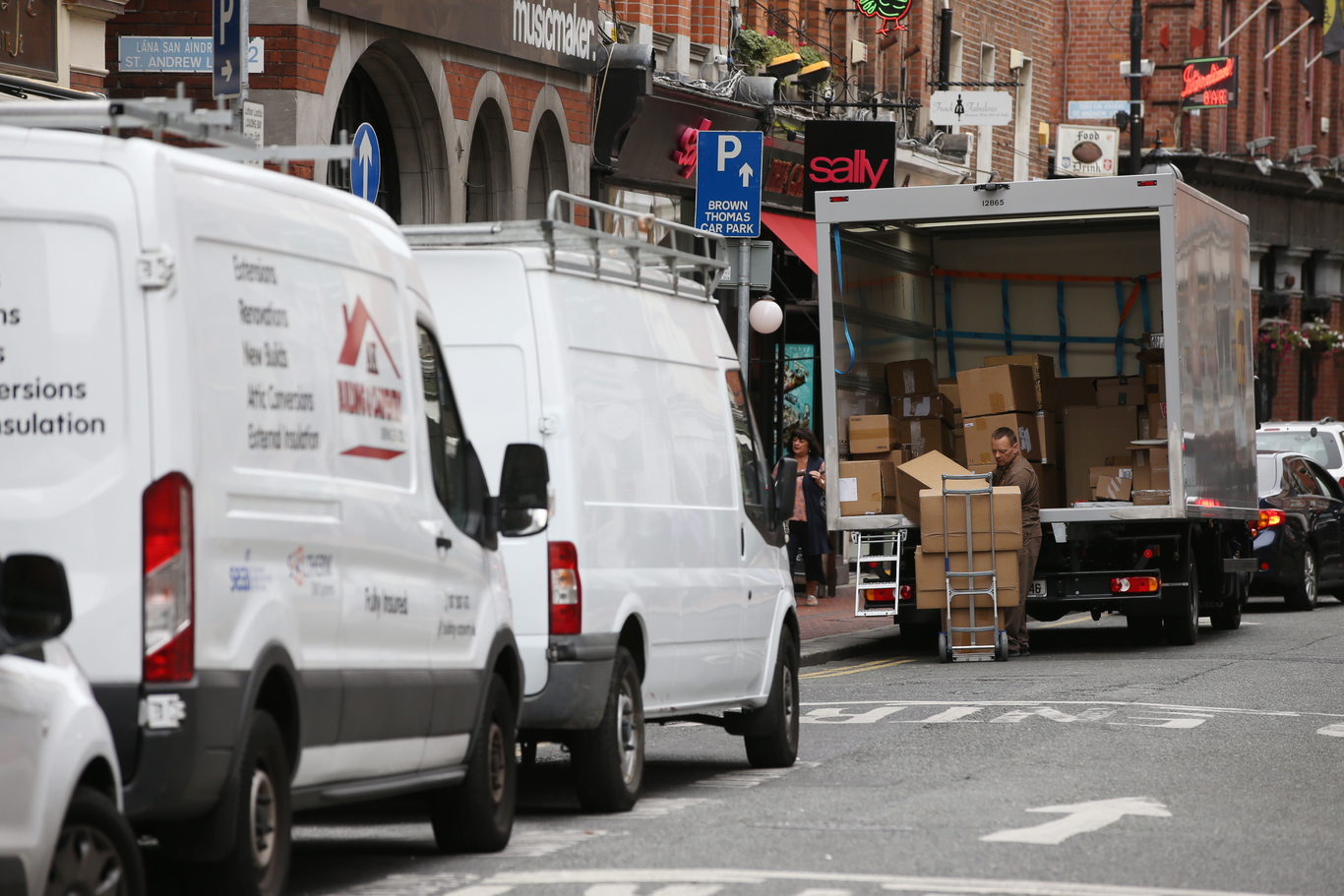Dublin council has awarded 'last-mile delivery' contracts to reduce congestion in the city
UPS and WeDispatch are among the firms enlisted to provide the service.
DUBLIN AND BELFAST councils have enlisted a group of companies to provide ‘last-mile delivery’ service in the cities.
In a joint tender posted in April last year, the authorities called on businesses to come up with solutions to “enhance the efficiency and effectiveness of deliveries, reducing the number of goods vehicles in their respective urban centres”.
A recent filing on the government’s procurement website show the winning bidders were global giant UPS, Australian startup Passel, Parkunload, Grid Smarter Cities Ltd, WeDispatch – formerly known as WeBringg - and Masterlink Airport Solutions.
The project is in its early stages and the council is still “organising contracts” at the moment, according to the council’s Smart Cities project manager, Jamie Cudden.
The winning bidders will be given initial funding up to €12,500. Following a further proof of concept process, up to two will be awarded between €50,000 and €100,000 as part of the final stage of the project.
The companies made presentations to Dublin council last month detailing their pitches.
Several mentioned the need for multi-modal courier services – some of which have been piloted elsewhere – which could allow goods to be delivered by foot and bike where possible.
Dublin council said in its original tender that most retailers are largely content with the current delivery processes in the city, but there are various safety issues that need to be improved.
“Cellar doors are left open outside pubs while beer barrels are rolled along the footpaths; trucks and vans mount the kerb while pedestrians and cyclists navigate through delivery operation,” it said at the time.
The cost of congestion
The initiative is part of Enterprise Ireland’s Small Business Innovation Research (SBIR) programme.
This ‘last-mile delivery’ project is part of the wider Smart Dublin initiative, a scheme that intends to encourage the use of tech to address challenges around transport congestion, management of extreme weather events and energy reduction.
In its original tender Dublin City Council outlined its vision to “develop a more pedestrian and cycle friendly city”, noting that optimising freight and cargo deliveries for businesses, citizens and environment is vital to this – which was identified in a 2016 transport study.
Congestion costs the city some €350 million per year and brings a host of “negative consequences for health and well-being”, it said.






